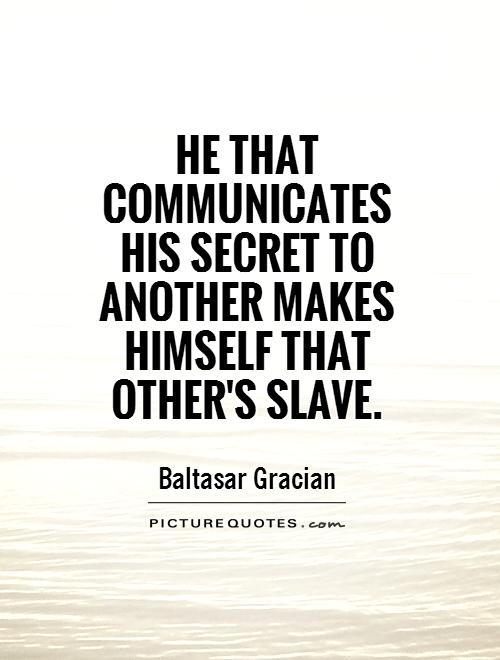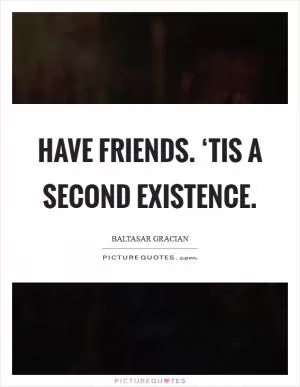He that communicates his secret to another makes himself that other's slave

He that communicates his secret to another makes himself that other's slave
Baltasar Gracian, a Spanish Jesuit and baroque prose writer, is known for his insightful and thought-provoking aphorisms. One of his most famous quotes is, “He that communicates his secret to another makes himself that other's slave.” This statement holds a profound truth about the nature of sharing personal information and the power dynamics that come into play when we reveal our innermost thoughts and feelings to others.In the context of Gracian’s words, it is important to consider the implications of divulging secrets to someone else. When we share our secrets with another person, we are essentially giving them power over us. By entrusting them with sensitive information, we are making ourselves vulnerable and dependent on their discretion and trustworthiness. This act of disclosure can create a sense of obligation and indebtedness towards the person we have confided in, as they now hold a piece of our innermost selves.
Furthermore, sharing secrets can also lead to a loss of control over our own narrative. Once we reveal something private to another person, we no longer have complete ownership over that information. It becomes a part of the shared knowledge between us and the other person, and we must rely on their discretion to keep it confidential. This loss of autonomy can make us feel like we are at the mercy of the other person’s judgment and actions, thus making us their “slave” in a sense.
Additionally, the act of sharing secrets can also create a sense of intimacy and connection between individuals. When we confide in someone and they reciprocate by sharing their own secrets with us, it can strengthen the bond between us and foster a deeper level of trust and understanding. However, it is important to be mindful of the power dynamics at play and to carefully consider the consequences of sharing personal information with others.












 Friendship Quotes
Friendship Quotes Love Quotes
Love Quotes Life Quotes
Life Quotes Funny Quotes
Funny Quotes Motivational Quotes
Motivational Quotes Inspirational Quotes
Inspirational Quotes